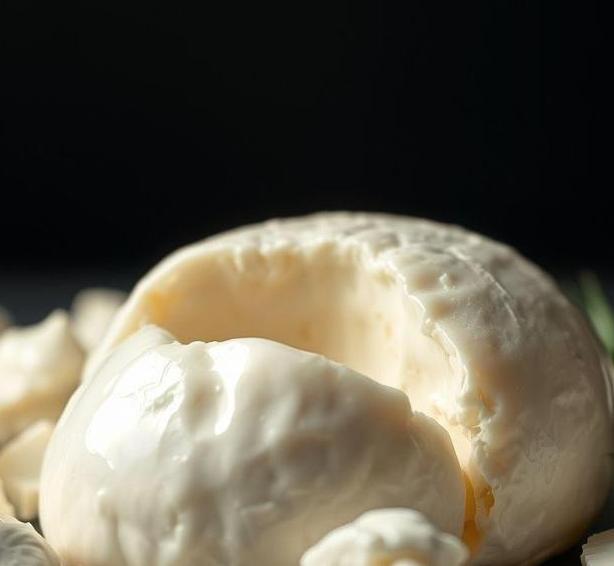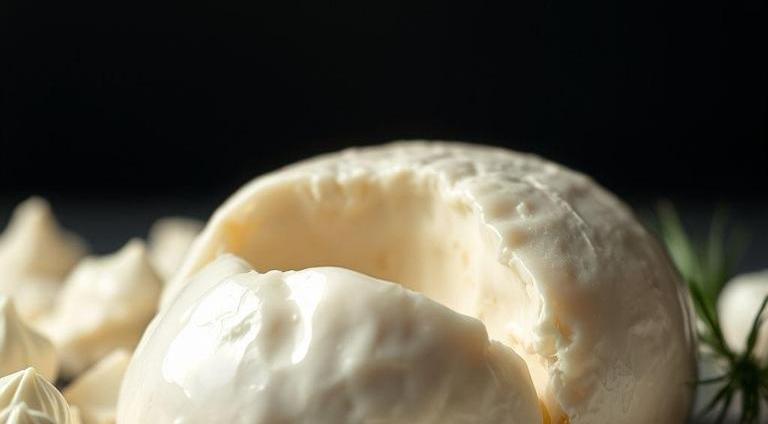Mozzarella cheese is a beloved staple in many kitchens, revered for its soft, creamy texture and mild flavor. Whether it’s melting over a pizza, adding freshness to a Caprese salad, or simply enjoyed with a drizzle of olive oil, mozzarella is versatile and delicious. But, like any dairy product, mozzarella does have a limited shelf life. If you’re wondering whether mozzarella cheese can go bad or how to keep it fresh for as long as possible, you’re in the right place. Let’s explore the ins and outs of this popular cheese, including its shelf life, signs of spoilage, and expert tips for proper storage.
Can Mozzarella Cheese Go Bad?
Yes, mozzarella cheese can indeed go bad. While mozzarella is famous for its fresh, moist texture, this also makes it particularly prone to spoilage. Unlike aged cheeses, which are dried and fermented to last longer, fresh mozzarella is soft and high in moisture content, which creates the ideal environment for bacteria and mold growth.
Why Does It Go Bad?
- Moisture Content: Mozzarella retains a high moisture level, and when left at room temperature for too long or stored improperly, the moisture can encourage bacterial activity.
- Lack of Preservatives: Fresh mozzarella typically contains fewer preservatives compared to processed cheeses, which means it’s more susceptible to spoilage.
That said, mozzarella can be kept fresh for a reasonable period if stored correctly. Let’s break down exactly how long it will last.
Shelf Life For Mozzarella Cheese

The shelf life of mozzarella cheese depends on a few factors, including whether it’s fresh or aged and how it’s stored. Here’s a breakdown:
Fresh Mozzarella
- Unopened, in Brine or Water: Fresh mozzarella, often sold in brine or water, has a shelf life of about 1-2 weeks when refrigerated. However, it’s best to consume it as soon as possible for the best flavor and texture.
- Opened, in Brine or Water: Once opened, it should be eaten within 5-7 days. Make sure to keep it submerged in brine or fresh water to maintain its moisture.
- Vacuum-Sealed: If the mozzarella is vacuum-sealed, it can last a bit longer, typically around 2-3 weeks in the fridge. After opening, follow the same guidelines for opened mozzarella.
Part-Skim Or Low-Moisture Mozzarella
- This version of mozzarella is less perishable due to its lower moisture content. When stored properly in the fridge, it can last 3-4 weeks past its sell-by date.
- Once opened, aim to consume it within 7-10 days.
Frozen Mozzarella
- Mozzarella can also be frozen, though its texture may change after thawing (it becomes more crumbly and watery). Frozen mozzarella can last up to 3-6 months in the freezer if wrapped tightly in plastic wrap or aluminum foil.
Common Signs Of Spoilage
Knowing when mozzarella has gone bad is crucial to avoid consuming spoiled food, which can lead to food poisoning. Here are some common signs of spoilage to look out for:
Change In Texture
- Mushy or Slimy Texture: Fresh mozzarella should be soft, but not slimy. If the texture becomes too soft, slippery, or squishy, it’s likely spoiled.
- Crumbly or Hardening: If mozzarella becomes stiff or crumbly, especially low-moisture mozzarella, it may be past its prime.
Off Or Sour Smell
- Fresh mozzarella has a mild, creamy aroma. If you notice a sour or rancid smell, it’s a clear indication that the cheese has spoiled.
Mold Or Discoloration
- Green, Blue, or White Spots: Mold is a major sign of spoilage. Any green, blue, or white spots are a definite red flag. Even if the mold is confined to a small area, it’s best to discard the cheese.
- Yellowing or Off-Color: Fresh mozzarella should be white to pale yellow. If it starts turning an unnatural yellow or pinkish hue, discard it.
Unpleasant Taste
- If mozzarella tastes sour or bitter, it’s a strong indicator that the cheese has gone bad.
Excessive Liquid
- While mozzarella retains some moisture, excessive liquid in the container is another warning sign. If the water or brine in which it’s stored appears cloudy, it’s time to throw it out.
How To Store Mozzarella Cheese?

Storing mozzarella properly can extend its shelf life and preserve its quality. Here are some practical tips:
Keep It In Brine Or Water (Fresh Mozzarella)
- For fresh mozzarella sold in water or brine, always store it in the liquid. This helps keep the cheese moist and prevents it from drying out. If you’ve opened the package, replace the water with fresh, salted water to keep it fresh for as long as possible.
Airtight Containers
- Once opened, store leftover mozzarella in an airtight container to limit exposure to air, which can accelerate spoilage.
Refrigeration
- Mozzarella should be kept refrigerated at all times. It should never be left out at room temperature for more than 2 hours, as the warm temperature can speed up bacterial growth.
Freezing (for Extended Shelf Life)
- If you have leftover mozzarella and don’t think you’ll finish it in time, freezing is an option. Wrap the cheese tightly in plastic wrap or aluminum foil, then place it in a freezer-safe bag. This can preserve it for up to 3-6 months, but be aware that the texture will change once thawed.
Keep It Separate From Strong Odors
- Like most cheeses, mozzarella can absorb odors from other foods in the fridge. To prevent this, store it away from strong-smelling items like onions or garlic.
Expert Tips
- Do Not Overhandle: The more you touch mozzarella with your hands, the more likely it is to spoil quickly. Try to handle it with care or use utensils to prevent bacteria from transferring.
- Brine Maintenance: If your mozzarella came in brine and you’re reusing it, make sure to refresh the brine regularly. Changing the brine every few days will help maintain the cheese’s flavor and freshness.
- Taste Before Using: If you’re unsure whether mozzarella is still good, always taste a small piece first. It’s better to err on the side of caution and discard it if there’s any doubt.
- Use as Soon as Possible: Fresh mozzarella tastes best when it’s eaten soon after purchasing. The sooner you eat it, the better the flavor and texture.
FAQs
How Can I Tell If Mozzarella Cheese Has Gone Bad?
You can tell if mozzarella cheese has gone bad by checking for signs such as an off or sour smell, mold growth, or a slimy texture. If the cheese has a significantly different color or an unpleasant taste, it should be discarded.
How Long Does Mozzarella Cheese Last In The Fridge?
Unopened mozzarella cheese can last for up to 2-3 weeks in the fridge, while opened mozzarella cheese typically lasts about 5-7 days when stored properly in an airtight container or wrapped tightly.
Can Mozzarella Cheese Go Bad If Left Out Overnight?
Yes, mozzarella cheese can go bad if left out at room temperature for more than 2 hours. The warm environment encourages bacterial growth, which can cause the cheese to spoil quickly.
Can Mozzarella Cheese Spoil After The Expiration Date?
Mozzarella cheese may still be safe to consume shortly after the expiration date if it has been stored properly, but it’s essential to inspect it for any signs of spoilage, like mold or an off smell. If in doubt, it’s best to discard it.
Does Mozzarella Cheese Freeze Well To Extend Its Shelf Life?
Mozzarella cheese can be frozen to extend its shelf life, though its texture may change. While it may become crumbly after freezing, it will still be safe to use in cooked dishes like pizzas or casseroles.
What Are The Signs Of Bad Mozzarella Cheese?
The primary signs that mozzarella cheese has gone bad include discoloration (yellowing or dark spots), a sour or rancid smell, slimy texture, and mold growth. If any of these are present, the cheese should be discarded.
Can Mozzarella Cheese Spoil In The Fridge Even If It’s Sealed?
Yes, mozzarella cheese can still spoil in the fridge even if it’s sealed, especially if it is kept beyond its use-by date or exposed to fluctuating temperatures. It is also important to check for any damage to the packaging that could allow air or moisture to affect the cheese.
How Can I Store Mozzarella Cheese To Prevent It From Going Bad?
To prevent mozzarella cheese from spoiling, keep it in its original packaging or wrap it tightly in plastic wrap or wax paper, and store it in an airtight container in the refrigerator. If you’ve already opened the package, you can submerge the cheese in a small amount of water to keep it fresh for a longer time.
Can Mozzarella Cheese Cause Food Poisoning?
Yes, if mozzarella cheese is spoiled or improperly stored, it can cause food poisoning due to harmful bacteria like Listeria or Salmonella. It is important to check for signs of spoilage and discard any questionable cheese.
Is It Safe To Eat Mozzarella Cheese With Mold On It?
If you find mold on mozzarella cheese, it’s generally not safe to eat. Unlike hard cheeses, where mold can be safely cut away, mold on mozzarella can penetrate the soft texture, making it unsafe to consume even if scraped off.